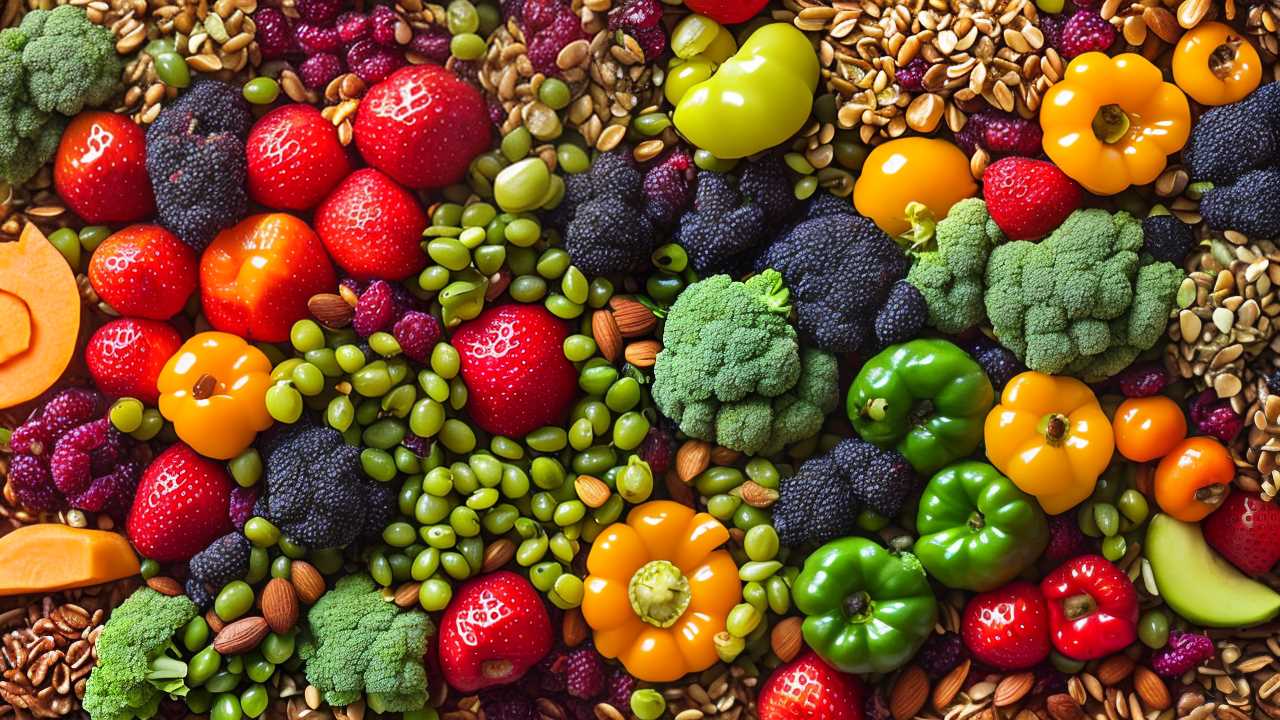Health
What Are the Benefits of a Plant-Based Diet?
Switching to a plant-based diet can significantly improve heart health by lowering cholesterol and blood pressure. This diet aids in weight management,


A plant-based diet offers numerous benefits that can improve your health and lifestyle. You’ll likely see improved heart health through lower cholesterol levels and better blood pressure, thanks to high fiber and healthy fats from nuts and seeds. This diet supports weight management by keeping you satisfied with fewer calories. Additionally, it can reduce the risk of chronic diseases like diabetes and certain cancers while promoting better digestive health through regular bowel movements. Plus, choosing plant-based options helps the environment by reducing your carbon footprint. There’s much more to investigate about how these changes can benefit you.
Article Summary
Improved Heart Health
In relation to heart health, adopting a plant-based diet can be a game changer. By focusing on fruits, vegetables, whole grains, and legumes, you can significantly lower your risk of heart disease.
These foods are rich in fiber, which helps reduce cholesterol levels and improve blood pressure. When you cut down on saturated fats found in animal products, you create a heart-friendly environment in your body.
It’s also wise to include nuts and seeds, which provide healthy fats that support cardiovascular health.
Remember, making small changes can lead to big improvements over time. So, whether you start with Meatless Mondays or gradually incorporate more plant-based meals, you’re taking steps toward a healthier heart.
Your future self will thank you!
Weight Management Benefits
Embracing a plant-based diet can play an essential role in managing your weight effectively. By focusing on whole foods like fruits, vegetables, whole grains, and legumes, you naturally consume fewer calories while feeling full and satisfied.
These foods are often lower in fat and high in fiber, which helps regulate your appetite. Additionally, plant-based diets encourage mindful eating habits, allowing you to tune into your body’s hunger cues.
Incorporating a variety of colorful foods can also keep your meals interesting and nutritious. If you’re looking to lose or maintain weight, this approach promotes a healthier lifestyle without extreme restrictions.
Reduced Risk of Chronic Diseases
A plant-based diet not only helps with weight management but also significantly reduces the risk of chronic diseases. By incorporating more fruits, vegetables, whole grains, and legumes into your meals, you’re fueling your body with essential nutrients.
Studies show that this diet can lower your chances of developing heart disease, diabetes, and certain cancers. You’ll find that these foods are rich in antioxidants and fiber, which support your immune system and promote overall health.
Plus, avoiding processed meats and excessive saturated fats contributes to better heart health. To make this transition safer, start by gradually adding plant-based meals to your routine.
This way, you can enjoy the benefits without feeling overwhelmed, leading to a healthier, more sustainable lifestyle.
Enhanced Digestive Health
Eating a diet rich in plant-based foods can significantly improve your digestive health. Whole grains, fruits, and vegetables are high in dietary fiber, which helps regulate your bowel movements and prevents constipation. When you consume fiber, it adds bulk to your stool, making it easier to pass.
Additionally, plant-based foods often contain prebiotics, which nourish the good bacteria in your gut. This balance of bacteria is essential for proper digestion and overall gut health. You might also notice less bloating and discomfort as your body adapts to processing more natural foods.
Incorporating a variety of plant-based options can help you achieve a healthier digestive system, making you feel more comfortable and energized in your daily life.
Environmental Sustainability
Switching to a plant-based diet can significantly reduce your environmental footprint. By choosing fruits, vegetables, grains, and legumes, you help decrease greenhouse gas emissions linked to animal agriculture.
Animal farming requires vast amounts of water and land, which contributes to deforestation and habitat loss. When you opt for plant-based foods, you support sustainable farming practices that are less resource-intensive.
Additionally, plant-based diets can minimize pollution from fertilizers and livestock waste, which often contaminate water sources.
As you make these choices, you’re not just benefiting your health; you’re also fostering a safer, cleaner environment for future generations.
Every meal is an opportunity to support sustainability, so consider how your dietary choices can contribute to a healthier planet.
Frequently Asked Questions
How Do I Transition to a Plant-Based Diet Smoothly?
To transition smoothly, start gradually by swapping out one meal a day for plant-based options. Discover new recipes, stock up on fruits and veggies, and listen to your body’s needs during this exciting change.
Can a Plant-Based Diet Provide Enough Protein?
Studies show that over 70% of plant-based eaters meet their protein needs. You can definitely get enough protein from legumes, nuts, and whole grains. Just guarantee you include a variety of these sources in your meals.
What Are Common Misconceptions About Plant-Based Diets?
Many folks think plant-based diets lack protein or essential nutrients, but that’s not true. You can get all necessary vitamins and minerals from plants. It’s vital to choose a variety of foods for balanced nutrition.
How Can I Ensure Proper Nutrient Intake on a Plant-Based Diet?
Imagine your body as a garden; nourish it with a variety of colorful plants. Include legumes, nuts, and grains, and consider fortified foods or supplements to fill any gaps. Balance and diversity keep your garden flourishing.
Are There Any Potential Drawbacks to a Plant-Based Diet?
Yes, there can be drawbacks to a plant-based diet. You might face nutrient deficiencies, especially in vitamin B12 and iron. It’s essential to monitor your intake and consider supplements to maintain overall health and well-being.


Hi, I’m Kyle Rivera, a news journalist and blog editor with the Daily Evening News. A TCU alum with a flair for storytelling, I spend my days uncovering impactful stories and my evenings exploring the realms of yoga, cycling, and whimsically bad poetry.
Travel is my escape; I’ve trekked from Tokyo’s neon lights to Iceland’s tranquil vistas. But no journey is complete without Mogli, my Golden Retriever, who’s redefining his breed standards in the most charming ways.
I love connecting with fellow travelers, yogis, cyclists, and anyone who enjoys a laugh at my poetic attempts. If you’re into stories that inspire, travel escapades, or just want to see what Mogli and I are up to, I’d love to hear from you on Instagram or Facebook. Let’s share tales and tips from around the globe!

